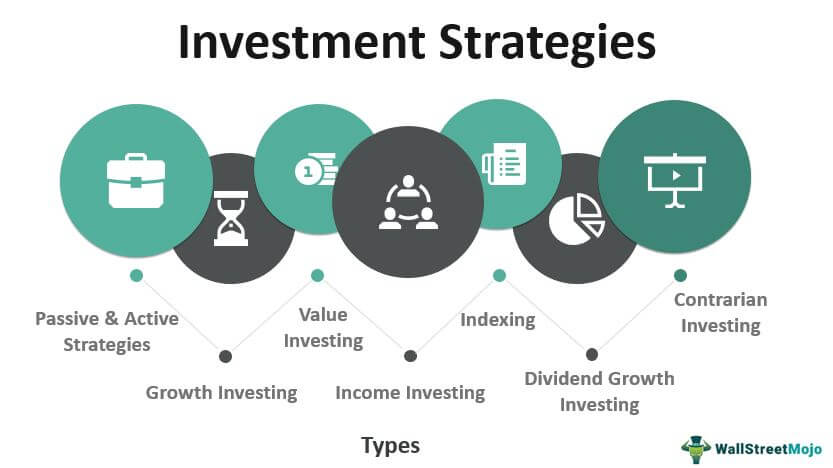Looking for 401(k) Alternatives? Investing Beyond a 401(k)
Apr 02, 2023 By Susan Kelly
When it comes to saving for retirement, many people rely on a 401(k) – but what if you're looking for an alternative? Investing beyond a traditional 401(k) can be intimidating at first. However, there are several great options available that may provide greater returns. If you're considering investing in different strategies or asset classes and want to potentially grow your retirement savings quicker than using only a standard 401(k), then read on!
In this blog post, we’ll explore the options and benefits of alternative investment strategies such as tangible assets, peer-to-peer lending, and more – so keep reading if you’d like to know how these could help maximize your financial independence during your golden years.
What is a 401(k), and how does it work
A 401(k) is a type of retirement savings program offered by many employers. It allows workers to save and invest a portion of their pre-tax salary into their account, typically including investments in stocks, bonds, or mutual funds.
Employers often match contributions at specific thresholds which can enhance overall returns. Because the money is invested and can grow over time, workers can enjoy the potential of higher returns than what they would receive from a traditional savings account.
Alternative Investment Strategies
For those looking for more than just a standard 401(k), several alternative investment strategies may help you build your retirement savings quickly. These include tangible assets such as gold, silver, and real estate, peer-to-peer lending, exchange-traded funds (ETFs), and direct investments in individual stocks and bonds.
While each option may offer greater potential returns than a traditional 401(k), they come with their own risks that should be considered before investing.
Benefits of investing beyond a 401(k), including diversification and higher returns
One of the main benefits of investing beyond a 401(k) is diversification. By diversifying your investments across different asset classes, you'll be able to reduce the risk associated with any particular investment and increase your chances of achieving higher returns than by investing solely in a 401(k).
Additionally, there is often potential for greater returns on investments such as precious metals, real estate, and peer-to-peer lending than one would see with a traditional 401(k). Investing in ETFs may also provide lower transaction fees than mutual funds.
Finally, those looking to take more control over their investment strategy may find the ability to make direct investments in individual stocks or bonds appealing.
Understanding the different types of investments available
When investing beyond a 401(k), it is important to understand the types of investments available, their associated risks and potential rewards, and how they can fit within your overall investment strategy.
Investing in tangible assets such as gold, silver, or real estate requires careful research into local markets. In contrast, peer-to-peer lending has associated risks, such as credit risk for the borrower.
Exchange-traded funds and direct investments in individual stocks or bonds require more knowledge of how these markets work, including how to analyze their performance and assess when to buy or sell.
Best alternatives to 401k who
Though a 401(k) is a great way to save for retirement, other alternatives may provide the potential for higher returns and greater diversification. Investing in tangible assets such as gold or silver can offer security from market fluctuations, while real estate investments can provide steady rental income. Peer-to-peer lending can offer higher returns than traditional fixed-income investments, though it is important to consider the credit risk associated with the borrower.
Exchange-traded funds and direct investments in individual stocks or bonds may provide greater control over your investment strategy but require a thorough understanding of the markets. Ultimately, when considering alternatives to a 401(k), it is important to understand the potential rewards and risks associated with each option.
Finding the right investment strategy for you based on your goals and risk tolerance
When considering alternatives to a traditional 401(k), it’s important to consider your own financial goals, risk tolerance, and investment strategy. Before investing in any asset or market, understand the associated risks and have a clear plan for how you will manage those risks.
Consider working with an experienced financial advisor who can help guide you through investing beyond a 401(k) and tailor your investments to your needs. Finally, stay informed on current market trends; you may find new opportunities to help meet your long-term financial goals.
Researching reputable investment platforms to invest in with low fees
When investing in alternative investment strategies, it is important to research and finds a reputable platform with low fees and easy access to funds. Many online platforms available today offer various options for different types of investments and allow you to access your funds quickly when needed.
When comparing platforms, pay close attention to the fees and any additional charges that may apply.
Staying up to date on the latest news and trends in the market
In order to stay informed and make the most of your investments, it is important to stay up-to-date on the latest news and trends in the market.
Keep track of current events that may impact different asset classes or markets and any new investment opportunities that may arise. Additionally, consider subscribing to online newsletters or podcasts to stay up-to-date on the latest news and analysis.
Making an informed decision about your investments
Investing beyond a traditional 401(k) can be intimidating at first; however, several great options may provide greater returns. When making an informed decision about your investments, thoroughly research each potential alternative and understand the associated risks of each option.
It is also important to consider your financial goals, risk tolerance, and investment strategy before investing in any asset or market. Finally, make sure to stay informed on current trends in the markets to maximize the potential of your investments.
FAQs
What are the key benefits of investing beyond a traditional 401(k)?
Investing beyond your 401(k) can give you greater returns and potential growth for your retirement savings. You will also have access to alternative strategies and asset classes that offer more flexibility in allocation, risk management, and diversification.
What options are available for investing outside of a 401(k)?
There are a variety of investments to choose from when looking beyond your traditional 401(k), such as tangible assets like gold, peer-to-peer lending platforms, real estate investment trusts (REITs), and even cryptocurrency. Each of these strategies has unique benefits, so it’s important to research and understand each option's pros and cons before making an investment.
Are there any risks associated with investing beyond a 401(k)?
As with any type of investment, there are always potential risks associated with investing outside of a traditional 401(k). It’s important to do your due diligence and understand the risks associated with each type of alternative investment before you commit. You should also seek professional advice from a financial adviser if you are unsure about investing beyond a 401(k).
Investing in alternatives to a traditional 401(k) can be a great way to grow your retirement savings and diversify your portfolio. You can use different investment strategies and asset classes to increase your returns with the right knowledge and approach. Understanding each option available can help ensure that you make informed decisions when investing outside of your 401(k).
Conclusion
When investing for retirement, a 401(k) isn’t your only option. Investing beyond a traditional 401(k) can help you grow your savings more quickly and diversify your investments. Various strategies and asset classes are available, including tangible assets, peer-to-peer lending, and cryptocurrency. It’s important to research and understand the risks associated with each type of investment before committing. With the right knowledge and approach, investing beyond a 401(k) can be a great way to reach your retirement goals!








